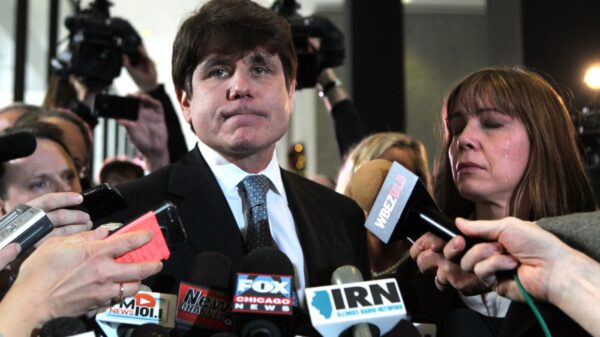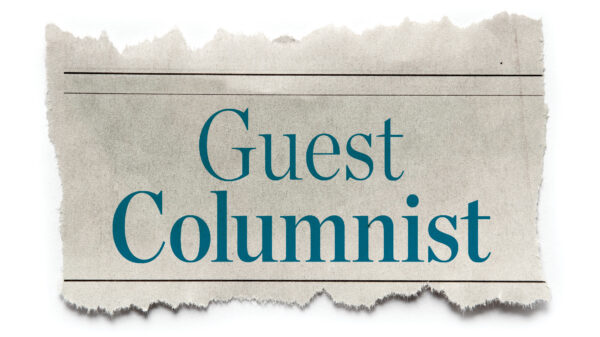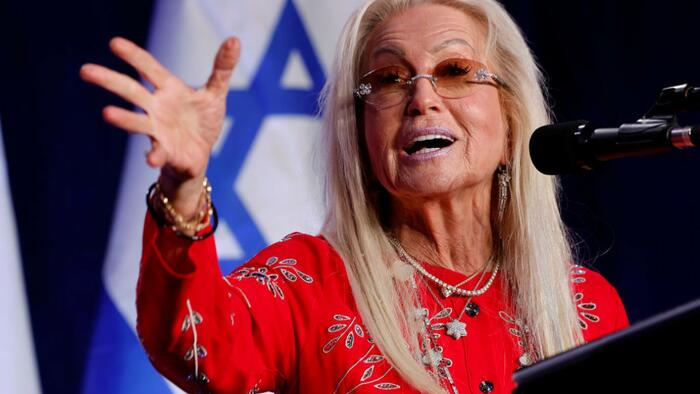A newly formed Super PAC named “MAGA Kentucky” aims to support a primary challenge against Congressman Thomas Massie, a Republican known for his opposition to foreign aid, particularly to Israel. The PAC, launched in June 2025, is funded entirely by three billionaires who are strong advocates for Israeli interests, according to recent disclosure filings with the Federal Election Commission.
The emergence of this PAC follows tensions between Massie and former President Donald Trump. Massie publicly criticized Trump’s decision to commit U.S. forces to Israel amid its ongoing conflict with Iran. This criticism appears to have catalyzed the formation of the PAC, which aims to unseat him. Trump has enlisted top political operatives, including Tony Fabrizio and Chris LaCivita, to manage the PAC’s operations, with LaCivita stating that they will spend “whatever it takes” to remove Massie from office.
Funding Sources and Impact
The PAC’s financial backing comes from three notable figures: hedge fund manager Paul Singer, who contributed $1 million, hedge fund manager John Paulson, who donated $250,000, and Miriam Adelson, who has previously funded various pro-Israel initiatives, contributing $750,000 through the Preserve America Super PAC. This funding structure raises questions about the motivations behind the PAC, particularly given that its main contributors are not from Kentucky and have a vested interest in U.S. policy towards Israel.
Massie has characterized the PAC’s efforts as deceptive, asserting that “Three billionaires from New York City and Las Vegas have funded a super PAC deceptively named Kentucky MAGA.” He argues that their primary goal is to undermine his stance against foreign aid for Israel and other military involvements in the Middle East, which he believes do not align with the principles of the MAGA movement.
Political Landscape and Massie’s Positions
Since his election to Congress in 2012, Massie has established a reputation for advocating fiscal discipline, the right to armed self-defense, and a non-interventionist foreign policy. He has garnered a significant following among libertarians and conservatives, with many considering him a successor to the late Ron Paul. His positions often place him at odds with mainstream Republican policies, particularly those involving foreign intervention and aid.
Recently, Massie has also taken stands on legislation that some see as controversial. He opposed the Antisemitism Awareness Act, which critics argue could restrict free speech regarding Israel, and introduced the Dual Loyalty Disclosure Act, aimed at requiring federal candidates to disclose any non-American citizenships. While advocates for Israel labeled this measure as antisemitic, Massie maintains that it does not target any specific country but is about loyalty to the U.S. Constitution.
The newly formed PAC has already initiated negative advertising campaigns against Massie, accusing him of voting against key components of the recently passed Big Beautiful Bill and aligning with figures opposed to U.S. interests. In response to these attacks, Massie has used social media to rally support, sharing his own advertisements and encouraging contributions to counteract the PAC’s efforts.
As the challenge unfolds, it highlights a growing divide within the Republican Party regarding foreign policy and the extent of U.S. support for Israel. With rising tensions around military aid and intervention, observers speculate that similar PACs may emerge targeting other Republican figures who oppose the party line on these issues.
Massie’s ongoing campaign and the efforts to unseat him signal a critical moment in American politics, reflecting broader debates about U.S. foreign policy, electoral influence from wealthy donors, and the ideological battles within the Republican Party.





































































